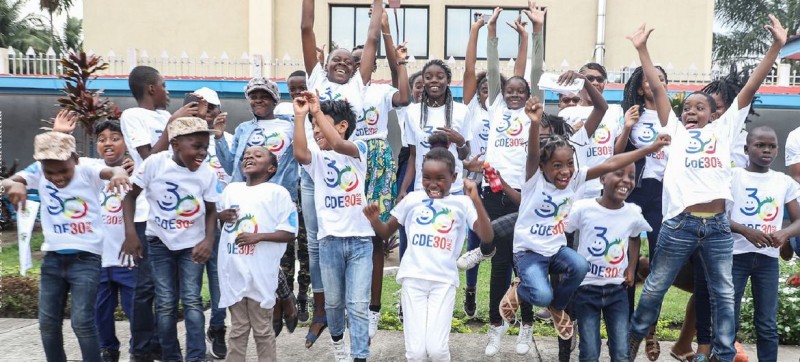Children in Congo Brazzaville gather to celebrate and demand their basic human rights. Despite significant progress since the adoption of the Universal Declaration of Human Rights (UDHR) 73 years ago, the COVID pandemic has “fed a frightening rise in inequalities”, and laid bare “many of our failures to consolidate the advances made”, said UN rights chief Michelle Bachelet, in a message marking Human Rights Day.
On #HumanRightsDay UN Human Rights Chief @mbachelet says equality is the solution to global setbacks exacerbated by COVID-19: Equality means that we embrace our diversity and demand that we are all treated without any kind of discrimination.
Read: https://t.co/hKAHmnHqBR pic.twitter.com/Bvpwm087Lg— UN Human Rights (@UNHumanRights) December 9, 2021
Ms. Bachelet and UN Secretary-General António Guterres took the opportunity to take stock of progress made, lessons learned, and put forward a new Agenda for Peace that presents a multidimensional vision of global security.
“This is an agenda of action – and an agenda of rights,” Ms Bachelet said.
‘Our Common Agenda’ a framework set out by the UN Secretary-General in September 2021 is a new social contract firmly anchored in human rights, calling for renewed solidarity across the world.
The Agenda proposes to deepen collective action by addressing the root causes of insecurity, increasing investment in resilience and early warning systems, developing multilateral partnerships, and more sustained efforts in peacebuilding and fighting the effects of climate change.
Progress under threat
Ms Bachelet acknowledged that since the UDHR was first signed, “the world as a whole grew richer, and people lived longer. More children went to school, and more women were able to gain a greater measure of autonomy. More people in more countries had more opportunities to break the shackles of poverty, class, caste and gender.”
Despite this progress however, she noted that over the past twenty years, a succession of global shocks and the onset of the pandemic in 2020 undermined these developments.
‘New threats’ to human rights: Guterres
With the world “at a crossroads”, new threats have emerged to basic human rights, such as the pandemic, digital technology’s overreach, and the climate crisis, said UN chief Guterres, in his message for Human Rights Day marked on Friday.
“Public space is shrinking. Poverty and hunger are rising for the first time in decades. Millions of children are missing out on their right to education. Inequality is deepening – but we can choose a different path”, he assured.
Mr. Guterres noted that recovery from the pandemic “must be an opportunity to expand human rights and freedoms, and to rebuild trust.”
Trust needs to be restored in the justice and impartiality of laws and institutions everywhere, he added, and dignity restored, together with the faith that “people can get a fair hearing, and resolve their grievances peacefully.”
“The United Nations stands for the rights of every member of our human family”, he continued, pledging that “today and every day, we will continue to work for justice, equality, dignity and human rights for all.”

Protestors at the March of Peace and Independence in Minsk, Belarus (file photo).
Equality, and the common good
Ms. Bachelet, ended her statement saying the equality was “at the heart of human rights”.
“Equality is about empathy and solidarity and about understanding that, as a common humanity, our only way forward is to work together for the common good.”
She said that had been “well understood” in the period of global reconstruction after World War Two.
“However, our failure to build back better after the financial crisis a decade ago, coupled with the social and economic turmoil caused by COVID-19 and the rapidly accelerating impacts of climate change, suggests we have forgotten the clear and proven remedies rooted in human rights and the importance of tackling inequalities”, she said.
If progress is to be maintained, that fundamental lesson needs to be learned once more, “not just for those who suffer from the gross inequalities that blight our planet, but for the sake of all of us.”
She invited everyone to join the new collective project of rebuilding, with equality as the driver, “so that we can recover better, fairer and greener from this crisis, and rebuild societies that are more resilient and sustainable.”




Comments are closed.